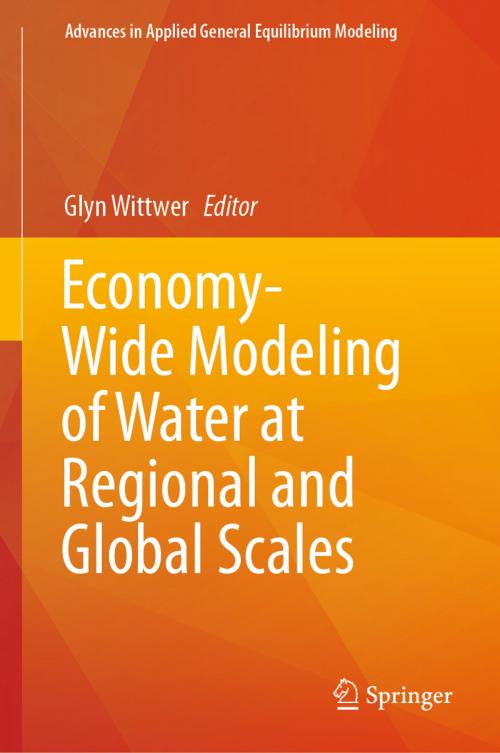Economy-Wide Modeling of Water at Regional and Global Scales
Nonfiction, Science & Nature, Science, Biological Sciences, Environmental Science, Business & Finance, Economics| Author: | ISBN: | 9789811361012 | |
| Publisher: | Springer Singapore | Publication: | February 7, 2019 |
| Imprint: | Springer | Language: | English |
| Author: | |
| ISBN: | 9789811361012 |
| Publisher: | Springer Singapore |
| Publication: | February 7, 2019 |
| Imprint: | Springer |
| Language: | English |
This book deals with the economic modelling of water at the global, national and sub-national levels. It presents a multi-faceted analysis and, while it outlines the theories behind various models, its main purpose is to analyse policy issues and present insights arising from modelling, including a chapter analysing the macroeconomic implications of climate change.
Arguably the most compelling reason for publishing a book on the economic modelling of water arises from the fact that agriculture accounts for approximately 70% of water used for economic purposes, while only contributing 4% of global income. Given that water is an essential commodity, this discrepancy may in part be symptomatic of an undervaluation of water due to immature and incomplete markets. In turn, this undervaluation has led to an ongoing misallocation of water. When economic models include water accounts that feed into production functions, they model impacts on the marginal product of water. Policies that improve the link between the marginal product and price of water will improve water allocation, while advanced economic models such as those presented here can enhance our ability to explore the possible impacts of improved policy.
This book deals with the economic modelling of water at the global, national and sub-national levels. It presents a multi-faceted analysis and, while it outlines the theories behind various models, its main purpose is to analyse policy issues and present insights arising from modelling, including a chapter analysing the macroeconomic implications of climate change.
Arguably the most compelling reason for publishing a book on the economic modelling of water arises from the fact that agriculture accounts for approximately 70% of water used for economic purposes, while only contributing 4% of global income. Given that water is an essential commodity, this discrepancy may in part be symptomatic of an undervaluation of water due to immature and incomplete markets. In turn, this undervaluation has led to an ongoing misallocation of water. When economic models include water accounts that feed into production functions, they model impacts on the marginal product of water. Policies that improve the link between the marginal product and price of water will improve water allocation, while advanced economic models such as those presented here can enhance our ability to explore the possible impacts of improved policy.















